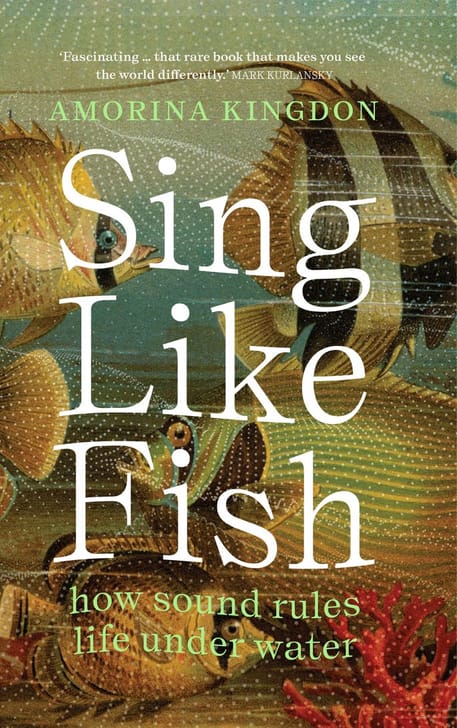Sing Like Fish:
how sound rules life under water
Overview
A captivating exploration of how underwater animals tap into sound to survive, and a clarion call for humans to address the ways we invade these critical soundscapes — from an award-winning science writer.
For centuries humans ignored sound in the ‘silent world’ of the ocean, assuming that what we couldn’t perceive, didn’t exist. But we couldn’t have been more wrong. Marine scientists now have the technology to record and study the complex interplay of the myriad sounds in the sea. Finally, we can trace how sounds travel with the currents, bounce from the seafloor and surface, bend with temperature, and even saltiness; how sounds help marine life survive; and how human noise can transform entire marine ecosystems.
In Sing Like Fish, award-winning science journalist Amorina Kingdon synthesises historical discoveries with the latest research in a clear and compelling portrait of this sonic undersea world. From plainfin midshipman fish, whose swim-bladder drumming is so loud it keeps houseboat-dwellers awake, to the syntax of whalesong, from the deafening crackle of snapping shrimp, to underwater earthquakes and volcanoes, sound plays a vital role in feeding, mating, parenting, navigating, and warning. Meanwhile, our seas also echo with human-made sound, and we are only just learning how these pervasive noises can mask mating calls, chase animals from their food, and even wound creatures.
Intimate and artful, Sing Like Fish tells a uniquely complete story of ocean animals’ submerged sounds, envisions a quieter future, and offers a profound new understanding of the world below the surface.
Details
- Format
- Size
- Extent
- ISBN
- RRP
- Pub date
- Rights held
- Other rights
- Paperback
- 234mm x 153mm
- 336 pages
- 9781914484322
- GBP£16.99
- 29 August 2024
- UK & Commonwealth (ex. Can)
- Gillian Mackenzie Agency
Awards
- Longlisted for the 2025 Andrew Carnegie Medal for Excellence in Fiction and Nonfiction
Praise
‘Fluidly marrying personal reflection and observation with science and history, and illuminated by fascinating facts and moments of beauty and grace, Sing Like Fish is both a love song to the wonders of the underwater world and a reminder of the vulnerability of the extraordinary beings that inhabit it.’
‘In precise and immersive prose, Amorina Kingdon takes a deep dive into this enchanting acoustic dimension to explore the latest scientific research on how denizens of the sea perceive sound and how it guides them to food, mates and helps them navigate their environment … Sing Like Fish opens our ears to the complexity and delicate balance in the symphony beneath the waves.’
About the Author
Amorina Kingdon is a science writer whose work has been anthologised in Best Canadian Essays and received honours including a Digital Publishing Award, a Jack Webster Award, and a Best New Magazine Writer from the National Magazine Awards. Previously, she was a staff writer for Hakai Magazine, and a science writer for the University of Victoria and the Science Media Center of Canada. She lives in Victoria, British Columbia.

